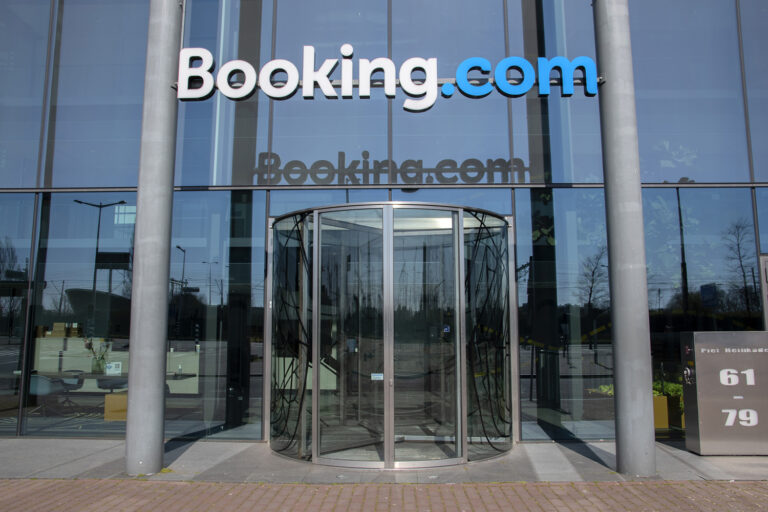What the rate parity lawsuit means for independent hoteliers
For years, many independent hoteliers across Europe felt like they were playing by someone else’s rules. Booking.com, the dominant online travel agency, required that hotels couldn’t offer lower prices on their own websites than they did on the platform, a condition known as a rate parity clause. The idea was to offer price consistency for customers. But in practice, it tied the hands of hotels trying to compete on their own terms.
Now, that tide is turning.
A legal battle that’s been a long time coming
What began as a court case in Germany has sparked a movement. In 2024, the European Court of Justice ruled that Booking.com’s pricing restrictions may violate EU competition laws. This decision wasn’t just a win for the hotels involved in that case; it was the green light for others across Europe to step forward.
And they have. Fast.
In May 2025, hotel associations from 26 European countries joined together to pursue damages from Booking.com. Backed by HOTREC (the European trade association for hotels), this collective legal effort argues that Booking.com’s parity clauses unfairly blocked competition and harmed thousands of independent hoteliers between 2004 and 2024.
As Alexandros Vassilikos, President of HOTREC, put it:
“European hoteliers have long endured unfair conditions and inflated costs. Now is the time to stand together and seek redress.”
Why this matters to independent hoteliers
For independent hotels, rate parity didn’t just limit pricing flexibility, it made it harder to survive. Here’s how:
- Lost control over pricing. Hotels couldn’t offer lower rates on their own websites without breaking their contracts with Booking.com. That meant even loyal guests who came directly to their site saw no incentive to book direct.
- Higher commission costs. With no freedom to compete on price, Booking.com maintained the upper hand, often charging 15% or more in commission. These costs added up quickly for smaller properties.
- Blocked innovation. Whether it was last-minute deals, special packages, or member-only offers, hotels were restricted from experimenting with pricing models that could bring in business on quieter days.
- Weakened direct relationships. Guests booked through OTAs instead of directly, meaning hotels lost out on guest data, upsell opportunities and loyalty-building moments.
For many, parity clauses became symbolic of a wider issue; the imbalance of power between small businesses and the digital giants that control online visibility.
The turning point
Booking.com has denied wrongdoing and says the ECJ decision has been misinterpreted. The company insists that it hasn’t been officially notified of a Europe-wide class action and that only the German clauses are under review.
But the message from Europe’s hotel sector is loud and clear, enough is enough.
This lawsuit isn’t just about the past. It’s about what comes next and what could change for good.
What a win could mean for hotels
If the legal effort succeeds or even partially reshapes parity norms it could unlock a more competitive and flexible future for hotels. Imagine being able to:
- Offer a better deal on your own website. Promotions, loyalty rates, value-add packages, all without needing to mirror them on OTAs.
- Drive more direct bookings. With rate parity out of the way, you can finally offer real reasons for guests to book direct not just promises, but tangible value.
- Negotiate better OTA terms. Without parity clauses, OTAs may need to justify their commissions and offer fairer partnerships.
- Invest in brand and loyalty. Focus more on owning the guest relationship and less on playing by OTA rules.
Some countries are already responding. Spain fined Booking.com €143 million for its practices in 2024. Switzerland ordered pricing changes. An industry sentiment is shifting and hotels are realising they don’t have to simply accept the way things have always been.
It’s not just legal, it’s strategic
Even if this lawsuit takes time, it’s already encouraging hotels to rethink how they grow. Now’s the moment to explore:
- How your pricing strategy can evolve
- Where your booking mix is too OTA-heavy
- What your website is doing to convert lookers into bookers
- How you reward and retain direct guests
This shift is not just about parity. It’s about power. For the first time in a long while, independent hoteliers have a chance to reshape the dynamics to prioritise direct, rethink distribution and reassert their value.
A new era is starting, stay ahead of it
This collective legal action is more than a court case. It’s a signal that the balance of power is starting to shift. Independent hotels across Europe are speaking up and the industry is listening.

